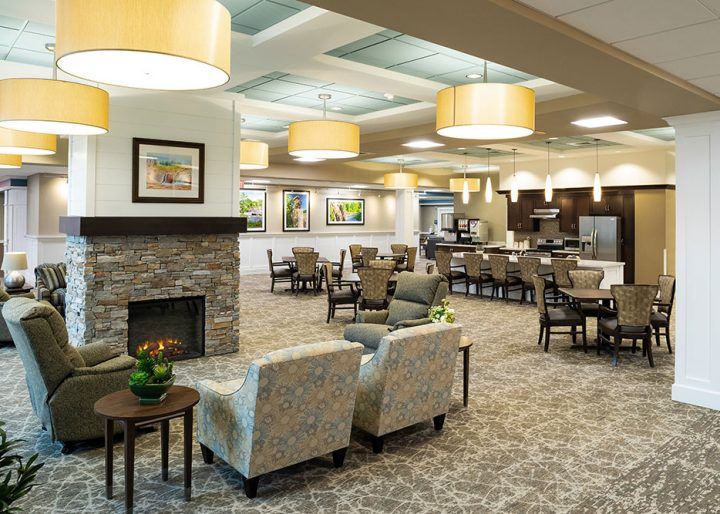Get professional care and comfort with trusted Assisted Living solutions.
Get professional care and comfort with trusted Assisted Living solutions.
Blog Article
How Helped Living Facilities Enhance High Quality of Life for Those With Dementia
Aided living facilities play a critical duty in boosting the top quality of life for individuals with dementia by applying tailored treatment strategies that accommodate their distinct requirements. These settings integrate organized activities with emotional support, cultivating a feeling of area while ensuring security and self-reliance. The integration of appealing programs and family involvement further enriches the homeowners' experience. Yet, the intricacies of mental deterioration care continue to advance, prompting a more detailed assessment of just how these centers adapt and innovate to meet the challenges encountered by citizens and their families. What effects does this have for future care models?
Personalized Care Plans
(Dementia Care Charlotte)In many situations, people with mental deterioration call for tailored assistance that resolves their unique needs and preferences. Personalized care plans are necessary in assisted living setups, as they make certain that each resident obtains ideal focus and solutions. These strategies are created collaboratively, including health care experts, caretakers, and member of the family to create a comprehensive overview of the individual's clinical background, cognitive capacities, and individual rate of interests.
A well-structured customized treatment strategy usually includes specific objectives connected to wellness administration, daily activities, and social engagement. It makes up the person's cognitive decline while promoting freedom and self-respect. Routine assessments and updates to the treatment plan are important, as they enable alterations based upon the local's advancing condition and preferences.
Secret elements of these plans often entail medicine management, behavioral assistance methods, and nutritional standards tailored to the individual's requirements (Assisted Living). By concentrating on personalized care, helped living centers can cultivate an encouraging setting that boosts the lifestyle for people with dementia, inevitably adding to their total wellness and joy. This personalized approach values the uniqueness of each homeowner, ensuring they obtain the caring treatment they need

Engaging Tasks and Programs
Engaging citizens in meaningful tasks and programs is crucial for improving the lifestyle for individuals with mental deterioration. These activities not only offer satisfaction but likewise boost cognitive feature and promote social communication, which can reduce feelings of isolation usually experienced by citizens.

Furthermore, personalized programs are important in making certain that each resident's distinct preferences and abilities are recognized. This customized method encourages engagement, enhances self-confidence, and provides a sense of achievement.
Additionally, normal assessments of residents' passions can assist personnel customize and adapt activities to far better match advancing requirements. By focusing on appealing activities and programs, aided living facilities can substantially enhance the overall experience and emotional wellness of individuals coping with mental deterioration.
Safe and Helpful Environment
Creating a safe and supportive setting is necessary for individuals with mental deterioration, as it straight impacts their well-being and lifestyle. Helped living facilities are made with certain functions that advertise security while fostering a sense of safety and comfort. These settings prioritize ease of access, with formats that minimize complication and encourage freedom, enabling homeowners to navigate their environments a lot more easily.
Precaution, such as protected entryways and departures, protect against roaming and unapproved accessibility, which are crucial factors to consider for people with dementia (Assisted Living). Employee are educated to recognize the special needs of homeowners, offering customized support and supervision to guarantee their safety. The incorporation of soothing shades and acquainted objects can assist lower anxiety and disorientation, creating a much more calming atmosphere.
Along with physical safety and security, psychological support is critical. Facilities commonly use staff who are not only skilled in caregiving but likewise learnt compassion and interaction, cultivating trust and rapport with locals. This alternative strategy adds to a caring atmosphere where people really feel valued and recognized, eventually improving their general lifestyle.
Social Communication and Area
An encouraging setting not just focuses on safety and security yet additionally cultivates possibilities for social communication and area engagement, which are important for individuals with dementia. In assisted living facilities, organized tasks and common areas motivate citizens to get in touch with one an additional, lowering sensations of seclusion commonly experienced by those with cognitive problems.
Social communication plays a considerable function in improving emotional well-being and cognitive feature (Memory Care). Involving with peers in group activities such as games, arts and crafts, or workout not just promotes cognitive capabilities but also supports a feeling of belonging. Facilities usually arrange events that promote socialization, permitting citizens to develop relationships and share experiences, which can be particularly useful for those with dementia
Moreover, a vivid neighborhood atmosphere can enhance the overall quality of life for homeowners. Employee are educated to assist in interactions and assistance citizens in forming purposeful connections. By creating a society of interaction, assisted living centers help people with dementia keep social skills and boost their state of mind, ultimately adding to a more meeting life experience. This community-oriented method is essential in taking care of the challenges connected with dementia, advertising a sense of objective and continuity for citizens.
Household Participation and Support
Family participation is crucial in sustaining people with mental deterioration in assisted living atmospheres. Proactively involving relative not just provides psychological convenience to homeowners but likewise look these up promotes a sense of belonging and connection in their lives. When family members join treatment preparation and daily activities, they contribute useful understandings about the individual's choices, background, and needs, which can boost personalized care.
In addition, routine family members visits can substantially enhance the psychological well-being of homeowners, lowering feelings of isolation and anxiety. Relative can likewise help in preserving cognitive feature by involving their loved ones in familiar discussions and tasks. This communication reinforces individuality and helps locals really feel valued and comprehended.

Conclusion
In verdict, assisted living centers considerably boost the quality of life for people with dementia with personalized care plans, involving activities, and a secure environment. Collectively, these aspects create an alternative strategy to care that addresses the distinct demands of individuals with dementia, advertising overall wellness and self-respect.
Report this page